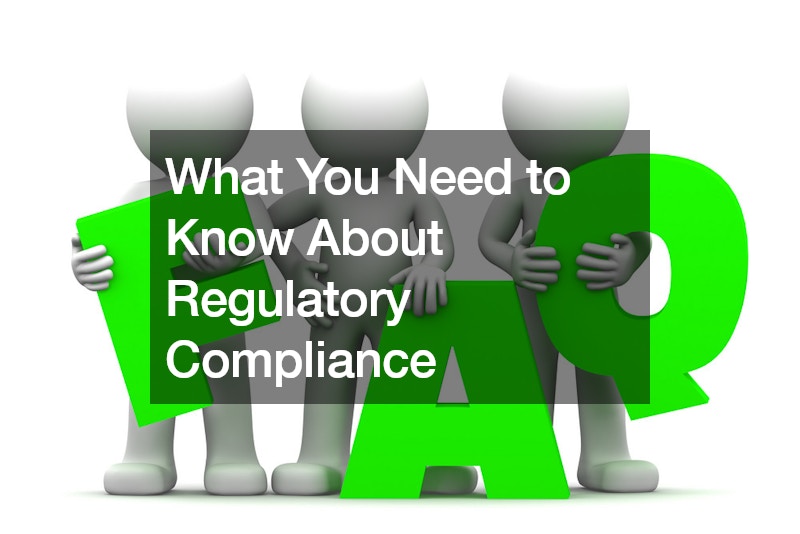In the world of business, juggling various regulations and compliance requirements can feel like maneuvering through a labyrinth. Regardless if you’re a seasoned entrepreneur or just dipping your toes into the commercial waters, understanding regulatory compliance is paramount. So, let’s unravel this complex subject and shed some light on what it means for your business.
The Role of a Commercial Lawyer
First things first, what exactly is regulatory compliance? Well, think of it as following the rules set forth by governing bodies to ensure your business operates within legal boundaries. These rules can span across a multitude of areas, from financial regulations to environmental standards, and everything in between.
Now, before you start breaking out in a cold sweat at the thought of navigating this regulatory jungle, take a deep breath. While it might seem daunting, there are resources available to help you stay on the right side of the law. One such invaluable resource is a commercial lawyer.
Navigating Commercial Disputes
A commercial lawyer is your guide through the maze of regulations. They’re like your legal Sherpa, helping you navigate treacherous terrain and avoiding potential pitfalls. Whether it’s drafting contracts, advising on compliance issues, or representing you in commercial disputes, a good commercial lawyer is worth their weight in gold.
Which brings us to our next point – commercial disputes. No matter how diligent you are in adhering to regulations, the unfortunate reality is that disputes can still arise. Whether it’s a breach of contract, a disagreement with a supplier, or a regulatory investigation, having a commercial lawyer in your corner can make all the difference.
Understanding Commercial Litigation
Commercial disputes can quickly escalate into full-blown legal battles, landing you smack dab in the middle of commercial litigation. This is where things can get messy, time-consuming, and expensive. But fear not, with the right legal representation, you can maneuver these choppy waters with confidence.
Now, you might be thinking, “But why do I need to worry about regulatory conformance in the first place?” Well, aside from the obvious legal ramifications of non-compliance, there are other reasons to play by the rules. For starters, maintaining regulatory conformance can enhance your reputation as a trustworthy and reliable business.
Importance of Regulatory Compliance
Customers and clients want to know that they’re dealing with a reputable company that takes compliance seriously. By demonstrating your commitment to regulatory conformance, you can instill confidence in your stakeholders and differentiate yourself from the competition.
Furthermore, regulatory conformance can also help protect your bottom line. Non-compliance can end up in hefty fines, legal fees, and also reputational damage – all of which can take a significant toll on your finances. By investing in compliance measures upfront, you can mitigate the risk of costly legal entanglements down the road.
Many industries have stringent regulations, and companies that fail to comply may find themselves at a disadvantage. Compliance can open doors to new opportunities, such as government contracts or partnerships with other compliant businesses. In today’s interconnected world, regulatory conformance is not just a legal requirement; it’s a strategic imperative for business success.
Ensuring Compliance
So, how can you ensure regulatory conformance in your business? It all starts with education and awareness. Stay informed about relevant regulations and seek guidance from experts when needed. Implement robust compliance procedures and regularly review and update them as regulations evolve.
Additionally, foster a culture of compliance within your organization. Educate your employees about their responsibilities and provide them with the tools and resources they need to fulfill them. Remember, compliance is a team effort, and everyone plays a role in maintaining regulatory conformance.
There are various software solutions available that can automate compliance tasks, track regulatory changes, and generate reports to demonstrate your adherence to regulations. By harnessing the power of technology, you can improve efficiency and accuracy in your compliance efforts.
Understanding Regulatory Compliance
In conclusion, regulatory conformance may seem like a daunting task, but with the right knowledge and resources, you can easily navigate the complexities with confidence. Lean on the expertise of a commercial lawyer to guide you through the maze of regulations and steer clear of commercial disputes and litigation. By prioritizing regulatory compliance and working with experts like David R. Hill Esq., you can protect your business, enhance your reputation, and ensure long-term success.

